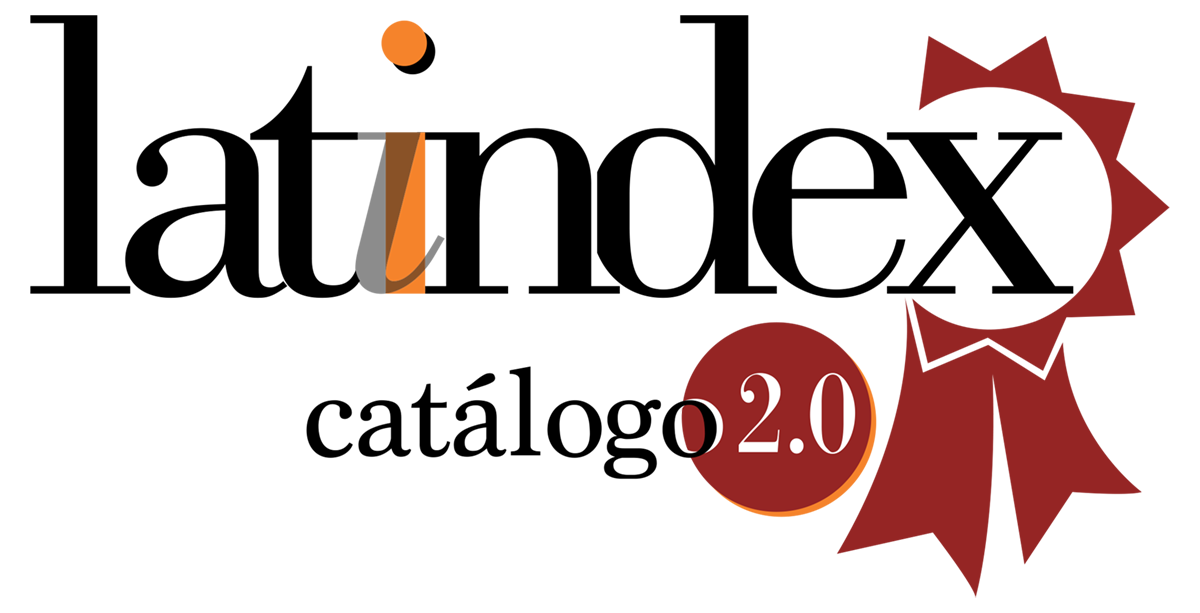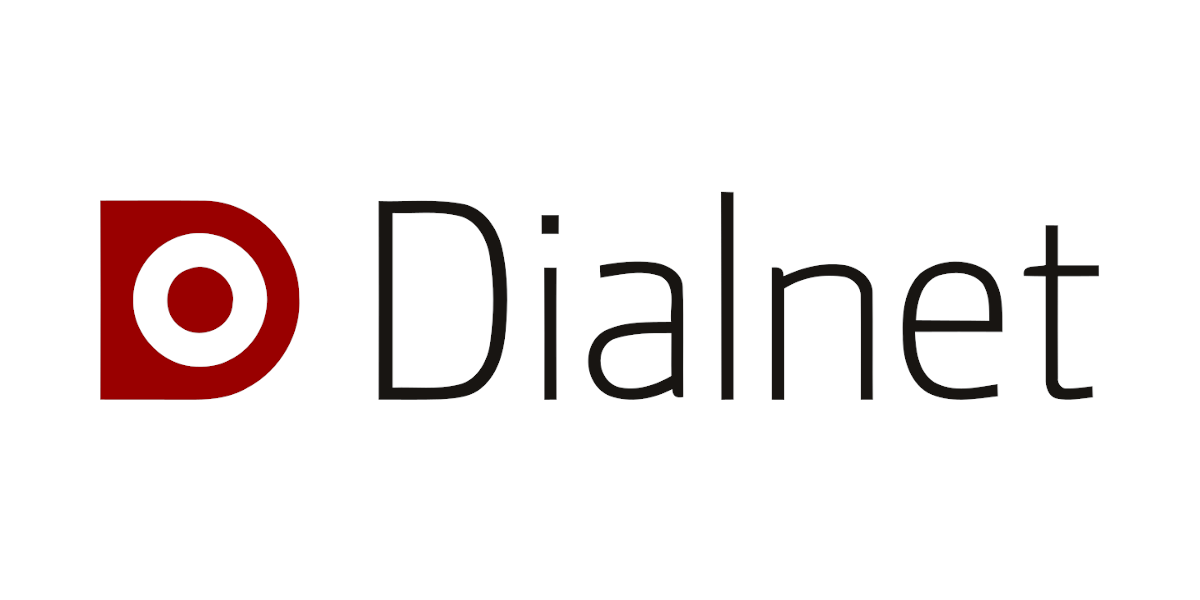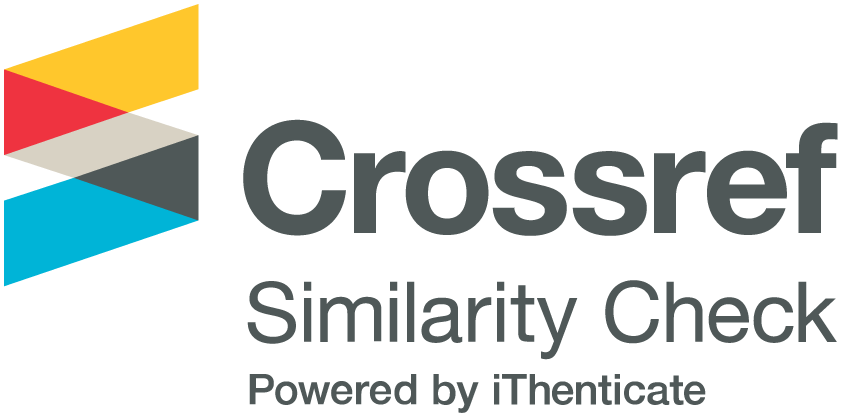Acceleration in Digitalisation: Social Networks, Civic Involvement and Electoral Processes in the United States and Latin America during the COVID-19 Pandemic
DOI:
https://doi.org/10.54790/rccs.60Keywords:
social networks, digital media, USA, Democracy, Governments, Covid-19, Pandemic, Social transformations, Latin AmericaAbstract
The COVID-19 pandemic triggered an acceleration in digitisation in practically all aspects of social life. Most notably, during the early stages of the health crisis, digital media became almost the only channel through which people could express themselves, in light of the social distancing measures that were decreed in most countries. In this article we analyse how this historical moment impacted civic participation among US and Latin American citizens, especially during the elections that were held in these countries. The article adopts a qualitative approach based on an analysis of information from the main academic studies and media coverage of the selected case studies. The experience of the 2020 US electoral process, the midterm elections in Mexico in 2021 and the presidential elections in Chile and Colombia are all considered. In all cases, the campaigns resorted to digital strategies in order to gain support. The study concludes that we find ourselves at an undeniable watershed moment, although its implications are not yet fully known, largely because it is not clear whether the use of new technologies really contributes to the strengthening of democratic values.
Downloads
Metrics
References
Adetunji, J. (2022). Viaje por la estrategia en redes sociales de la campaña presidencial chilena. The Conversation. https://theconversation.com/viaje-por-la-estrategia-en-redes-sociales-de-la-campana-presidencial-chilena-174264
Aguado, N. A. (2022). When charismatic leadership Trumps social networking: Searching for the effects of social media on beliefs of electoral legitimacy. Politics & Policy, 50(5), 942-951. https://doi.org/10.1111/polp.12494
Ahuja, M. B. (2021). Elecciones 2021 en México: concurrencia electoral y voto diferenciado. El Cotidiano, 37(228), 7-18.
Altamura, C. y Oliver, B. (2022). Who Feels the Bern? An Analysis of Support for Bernie Sanders in the 2020 Democratic Primary. American Politics Research, 50(5), 643-656. https://doi.org/10.1177/1532673X221112390
Altiparmakis, A., Bojar, A., Brouard, S., Foucault, M., Kriesi, H. y Nadeau, R. (2021). Pandemic politics: policy evaluations of government responses to COVID-19. West European Politics, 44(5-6), 1159-1179. https://doi.org/10.1080/01402382.2021.1930754
Andrade, C. P., González, R. F. y Contreras, M. P. (2021). Las conferencias mañaneras y el monitoreo de medios. UVserva. Una mirada desde los observatorios, (12), 153-168. https://doi.org/10.25009/uvs.vi12.2797
Bautista-San Juan, M. (2022). Elecciones en tiempos de Covid-19: La disputa por el poder. Con-Ciencia Serrana Boletín Científico de la Escuela Preparatoria Ixtlahuaco, 4(7), 50-51.
Beaufort, M. (2018). Digital media, political polarization and challenges to democracy. Information, Communication & Society, 21(7), 915-920. https://doi.org/10.1080/1369118X.2018.1451909
Bender, M. C. (2021). Frankly, We Did Win This Election: The Inside Story of How Trump Lost. Twelve.
Bisbee, J. y Honig, D. (2020). Flight to safety: 2020 democratic primary election results and COVID-19. Covid Economics, 3(10), 54-84.
Bravo Regidor, C. (2021). Elección 2021: saldos. Expansión Política. https://politica.expansion.mx/voces/2021/06/08/eleccion-2021-saldos
Castells, M. (2011). Network theory. A network theory of power. International journal of communication, 5, 15.
Castells, M. (2012). Redes de indignación y esperanza. Madrid: Alianza Editorial.
Chadwick, A. y Howard, P. N. (Eds.) (2009). Routledge handbook of Internet politics. London: Routledge. https://doi.org/10.4324/9780203962541
Chaudhry, H. N., Javed, Y., Kulsoom, F., Mehmood, Z., Khan, Z. I., Shoaib, U. y Janjua, S. H. (2021). Sentiment analysis of before and after elections: Twitter data of US election 2020. Electronics, 10(17), 2082. https://doi.org/10.3390/electronics10172082
Clarke, H., Stewart, M. C. y Ho, K. (2021). Did Covid—19 Kill Trump Politically? The Pandemic and Voting in the 2020 Presidential Election. Social Science Quarterly, 102(5), 2194-2209. https://doi.org/10.1111/ssqu.12992
Cota, I. (2021). Resultados en Ciudad de México: Morena se desploma. El País. https://elpais.com/mexico/elecciones-mexicanas/2021-06-07/morena-se-desploma-en-ciudad-de-mexico.html
Cruz, C. G. (2021). Elecciones federales y locales México 2021: polarización, confrontación y continuidad a la mitad del gobierno de AMLO. Revista Elecciones, 20(22), 403-414. https://doi.org/10.53557/Elecciones.2021.v20n22.13
Dai, Y., Li, Y., Cheng, C. Y., Zhao, H. y Meng, T. (2021). Government-led or public-led? Chinese policy agenda setting during the COVID-19 pandemic. Journal of Comparative Policy Analysis: Research and Practice, 23(2), 157-175. https://doi.org/10.1080/13876988.2021.1878887
De la Garza, D. (2020). Medios sociales y democratización de la comunicación: del potencial emergente a los riesgos del presente. Democracias, 8(8), 183-211. https://doi.org/10.54887/27376192.16
De la Garza, D. (2022). La cuarta alternancia en el estado de Nuevo León desde la transición a la democracia: redes sociales, polarización, identidad regional y rebelión contra el centralismo. Revista mexicana de opinión pública, (32), 135-149. https://doi.org/10.22201/fcpys.24484911e.2022.32.80652
De la Garza, D., Ibáñez, D. y López-López, P. C. (2021). Crisis of democracy, social media and the digital age: The narrative of specialists from Spain, Mexico and Peru. En International Conference on Information Technology & Systems (pp. 169-178). Springer, Cham. https://doi.org/10.1007/978-3-030-68418-1_18
De la Garza, D., Peña-Ramos, J. A. y Recuero-López, F. (2019). La participación política online de los jóvenes en México, España y Chile. Comunicar: Revista Científica de Comunicación y Educación, 27(61), 83-92. https://doi.org/10.3916/C61-2019-07
De la Garza, D. y Ramírez, E. (2020). Efectos de la ciberpolítica en la democracia contemporánea: percepciones de profesores universitarios en México y España. Revista Ibérica de Sistemas e Tecnologias de Informação, (26), 40-54.
De la Garza, D. y Robles, G. (2020). Movilización cívica, redes sociales y neoliberalismo: resistencias en México y Ecuador, 2018-2019. Temas sociológicos, (27), 345-371. https://doi.org/10.29344/07196458.27.2470
De Zúñiga, H. G. y Shahin, S. (2015). Social media and their impact on civic participation. En New technologies and civic engagement (pp. 92-104). Routledge.
Díaz, M. S. y Vega-Valdés, J. C. F. (2003). Algunos aspectos teórico-conceptuales sobre el análisis documental y el análisis de información. Ciencias de la Información, 49-60.
Dulci, T. M. S. y Sadivia, V. A. (2021). El Estallido Social en Chile: ¿rumbo a un Nuevo Constitucionalismo? Revista Katálysis, 24, 43-52. https://doi.org/10.1590/1982-0259.2021.e73555
Duquette, C. M., Mixon, F. G. y Cebula, R. J. (2017). Swing states, the winner-take-all electoral college, and fiscal federalism. Atlantic Economic Journal, 45(1), 45-57. https://doi.org/10.1007/s11293-016-9526-2
El Ouirdi, M., El Ouirdi, A., Segers, J. y Pais, I. (2016). Technology adoption in employee recruitment: The case of social media in Central and Eastern Europe. Computers in human behavior, 57, 240-249. https://doi.org/10.1016/j.chb.2015.12.043
Espino, L. (2021). López Obrador: El poder del discurso populista. Turner Mx.
Estrada, L. (2022). El Imperio de los Otros Datos: Tres años de falsedades y engaños desde palacio. Penguin Random House Grupo Editorial.
Falomir, J. A. y Lucca, J. B. (2020). ¿La «grieta» mexicana? La polarización de la opinión pública en la era de Andrés Manuel López Obrador y del COVID19. Abya-Yala: Revista sobre acesso à justiça e direitos nas Américas.
Felmlee, D. y Faris, R. (2013). Interaction in social networks. En Handbook of social psychology (pp. 439-464). Dordrecht: Springer. https://doi.org/10.1007/978-94-007-6772-0_15
Franco, L. (2022). Ni debates ni plaza pública, la campaña se hace desde las redes sociales. El País. https://elpais.com/america-colombia/elecciones-presidenciales/2022-05-28/ni-debates-ni-plaza-publica-la-campana-se-hace-desde-las-redes-sociales.html
Gavira González, N. (2022). La cobertura del servicio en la zona urbana fue de 70% mientras que en los centros poblados y las áreas rurales el dato fue de 28,8%. LR. La República. https://www.larepublica.co/economia/hogares-colombianos-con-acceso-a-internet-ya-van-en-60-segun-encuesta-del-dane-3413775
Gil de Zúñiga, H., Jung, N. y Valenzuela, S. (2012). Social media use for news and individuals’ social capital, civic engagement and political participation. Journal of computer-mediated communication, 17(3), 319-336. https://doi.org/10.1111/j.1083-6101.2012.01574.x
Gómez, L. y Ochoa, O. O. (2021). Polarización ideológica, segregación y los nuevos medios en México. Política y gobierno, 28(1).
González, C. y García, M. S. (2022). El «estallido social» en Colombia: lecturas críticas desde el Trabajo Social: «The revolt» in Colombia: critical approaches from social work. Propuestas Críticas en Trabajo Social-Critical Proposals in Social Work, 2(3), 207-219. https://doi.org/10.5354/2735-6620.2022.68631
González, M. F. (2022). Chile online: conexión a Internet sube y alcanza casi al 90% de los hogares. La Tercera. https://www.latercera.com/pulso/noticia/chile-online-conexion-a-internet-sube-y-alcanza-casi-al-90-de-los-hogares/CNKZKA6PDJB25CZUHL7KSVNSII/
Hannan, J. (2018). Trolling ourselves to death? Social media and post-truth politics. European Journal of Communication, 33(2), 214-226. https://doi.org/10.1177/0267323118760323
Heawood, J. (2018). Pseudo-public political speech: Democratic implications of the Cambridge Analytica scandal. Information polity, 23(4), 429-434. https://doi.org/10.3233/IP-180009
Heiss, C. (2020). Chile: entre el estallido social y la pandemia. Análisis Carolina, (18), 1-14. https://doi.org/10.33960/AC_18.2020
Hennig, B. D. (2021). In Focus: Trump Tweets: Power and the Global Politics of Social Media. Political Insight, 12(1), 20-21. https://doi.org/10.1177/20419058211000998
Herman, E. S. y Chomsky, N. (2010). Manufacturing consent: The political economy of the mass media. Random House.
Hinds, J., Williams, E. J. y Joinson, A. N. (2020). «It wouldn’t happen to me»: Privacy concerns and perspectives following the Cambridge Analytica scandal. International Journal of Human-Computer Studies, 143, 102498. https://doi.org/10.1016/j.ijhcs.2020.102498
Hmielowski, J. D., Staggs, S., Hutchens, M. J. y Beam, M. A. (2022). Talking politics: The relationship between supportive and opposing discussion with partisan media credibility and use. Communication Research, 49(2), 221-244. https://doi.org/10.1177/0093650220915041
Hobbs, A. (2021). Trump’s Expulsion From Social Media: When Is It Time to Ban an Account? In SAGE Business Cases. SAGE Publications: SAGE Business Cases Originals. https://doi.org/10.4135/9781529775181
Honorato, A. y Rubiños Cea, S. (2021). Chile: una segunda vuelta presidencial decisiva. Celag.org. https://www.celag.org/chile-una-segunda-vuelta-presidencial-decisiva/
Jiménez-Yañez, C. (2020). # Chiledespertó: causas del estallido social en Chile. Revista mexicana de sociología, 82(4), 949-957.
Justwan, F. y Williamson, R. D. (2022). Trump and Trust: Examining the Relationship between Claims of Fraud and Citizen Attitudes. PS: Political Science & Politics, 1-8. https://doi.org/10.1017/S1049096522000221
Kaur, D., Sahdev, S. L., Chaturvedi, V. y Rajawat, D. (2020). Fighting COVID-19 with technology and innovation, evolving and advancing with technological possibilities. International Journal of Advanced Research in Engineering and Technology, 11(7), 395-405. https://doi.org/10.34218/IJARET.11.7.2020.039
Kreiss, D., Finn, M. y Turner, F. (2011). The limits of peer production: Some reminders from Max Weber for the network society. New media & society, 13(2), 243-259. https://doi.org/10.1177/1461444810370951
Kubin, E. y von Sikorski, C. (2021). The role of (social) media in political polarization: a systematic review. Annals of the International Communication Association, 45(3), 188-206. https://doi.org/10.1080/23808985.2021.1976070
Landman, T. y Splendore, L. D. G. (2020). Pandemic democracy: elections and COVID-19. Journal of Risk Research, 23(7-8), 1060-1066. https://doi.org/10.1080/13669877.2020.1765003
Lanier, J. (2011). You are not a gadget: A manifesto. Vintage.
Lin, Y. y Kant, S. (2021). Using social media for citizen participation: Contexts, empowerment, and inclusion. Sustainability, 13(12), 6635. https://doi.org/10.3390/su13126635
Loader, B. D. y Mercea, D. (2011). Networking democracy? Social media innovations and participatory politics. Information, communication & society, 14(6), 757-769. https://doi.org/10.1080/1369118X.2011.592648
Martínez, C. A. y Olivares, A. L. (2022). Chile 2021: entre un intenso calendario electoral y la acusación constitucional en contra de Sebastián Piñera. Revista de ciencia política (Santiago), 42/i>(2), 225-253. https://doi.org/10.4067/s0718-090x2022005000119
Moats, N. A. (2021). A Thomistic just rebellion analysis of the US Capitol Insurrection. New blackfriars, 102(1102), 873-892. https://doi.org/10.1111/nbfr.12683
Montes, R. (2021). La izquierda y la derecha cambian de generación en Chile con miras a la presidencia en 2022. El País. https://elpais.com/internacional/2021-07-19/la-izquierda-y-la-derecha-cambian-de-generacion-en-chile-con-miras-a-la-presidencia-en-2022.html
Noyola Rodríguez, A. (2022). Ni con la derecha ni con López Obrador: qué busca (y ofrece) la ‘tercera vía’ en México. RT. https://actualidad.rt.com/actualidad/439589-oposicion-lopez-obrador-busca-tercera-via-mexico
Palma. E. (2021). Las expectativas de la alianza opositora ‘Va por México’. AgendaPública El País. https://agendapublica.elpais.com/noticia/17419/expectativas-alianza-opositora-va-xico
Paul, F. (2021). Elecciones en Chile: la aparente paradoja entre el éxito de Kast en primera vuelta y los que votaron por una Constituyente de izquierda. BBC News Mundo. https://www.bbc.com/mundo/noticias-america-latina-59377209
Persily, N. y Stewart III, C. (2021). The Miracle and Tragedy of the 2020 US Election. Journal of Democracy, 32(2), 159-178. https://doi.org/10.1353/jod.2021.0026
Petrescu, M. y Krishen, A. S. (2020). The dilemma of social media algorithms and analytics. Journal of Marketing Analytics, 8(4), 187-188. https://doi.org/10.1057/s41270-020-00094-4
Pew Research Center (2021). Internet/Broadband Fact Sheet. Pew Research Center. https://www.pewresearch.org/internet/fact-sheet/internet-broadband/
Red, M. (2013). Rocking the vote in Mexico’s 2012 presidential election: Mexico’s popular music scene’s use of social media in a post-Arab Spring context. International Journal of Communication, 7, 15.
Reny, T. T. y Newman, B. J. (2021). The opinion-mobilizing effect of social protest against police violence: Evidence from the 2020 George Floyd protests. American Political Science Review, 115(4), 1499-1507. https://doi.org/10.1017/S0003055421000460
Riera Bosqued, L. (2021). Gustavo Petro, el exguerrillero líder izquierdista que apela al cambio social en Colombia. Euronews. https://es.euronews.com/2022/06/19/gustavo-petro-el-exguerrillero-lider-izquierdista-que-apela-al-cambio-social-en-colombia
Rivera-Aguilera, G., Imas, M. y Jiménez-Díaz, L. (2021). Jóvenes, multitud y estallido social en Chile. Revista Latinoamericana de Ciencias Sociales, Niñez y Juventud, 19(2), 230-252. https://doi.org/10.11600/rlcsnj.19.2.4543
Rocha, Y. M., de Moura, G. A., Desidério, G. A., de Oliveira, C. H., Lourenço, F. D. y de Figueiredo Nicolete, L. D. (2021). The impact of fake news on social media and its influence on health during the COVID-19 pandemic: A systematic review. Journal of Public Health, 1-10. https://doi.org/10.1007/s10389-021-01658-z
Sharma, A. y Shukla, A. K. (2016). Impact of social messengers especially WhatsApp on youth-a sociological study. International Journal of Advance Research and Innovative Ideas in Education, 2(5), 367-375.
Shu, K., Sliva, A., Wang, S., Tang, J. y Liu, H. (2017). Fake news detection on social media: A data mining perspective. ACM SIGKDD explorations newsletter, 19(1), 22-36. https://doi.org/10.1145/3137597.3137600
Suiter, J. (2016). Post-truth politics. Political insight, 7(3), 25-27. https://doi.org/10.1177/2041905816680417
Tarman, B. y Yigit, M. F. (2013). The impact of social media on globalization, democratization and participative citizenship. JSSE-Journal of Social Science Education.
Titelman, N. (2021). Cambiar o morir: la crisis terminal de los partidos políticos chilenos. Ciperchile. https://www.ciperchile.cl/2021/06/18/cambiar-o-morir-la-crisis-terminal-de-los-partidos-politicos-chilenos/
Tollefson, J. (2021). Tracking QAnon: how Trump turned conspiracy-theory research upside down. Nature, 590(7845), 192-194. https://doi.org/10.1038/d41586-021-00175-z
Treem, J. W. (2015). Social media as technologies of accountability: Explaining resistance to implementation within organizations. American Behavioral Scientist, 59(1), 53-74. https://doi.org/10.1177/0002764214540506
Turkewitz, J. (2022). Gustavo Petro gana las elecciones y será el primer presidente de izquierda de Colombia. The New York Times. https://www.nytimes.com/es/2022/06/19/espanol/gustavo-petro-presidente-colombia.html
Valenzuela, H. C. y Sáez, J. B. (2020). ¿ Revolución, revuelta, despertar de un pueblo o «estallido social»? A un año de la crisis de octubre de 2019 en Chile. Revista F@ ro, 2(32), 159-181.
Vallejo, G. (2021). La participación electoral cierra en 52.67%, cinco puntos más que en 2015. Expansión Política. https://politica.expansion.mx/mexico/2021/06/08/la-participacion-electoral-cierra-en-52-67-cinco-puntos-mas-que-en-2015
Van Bavel, J. J. y Pereira, A. (2018). The partisan brain: An identity-based model of political belief. Trends in cognitive sciences, 22(3), 213-224. https://doi.org/10.1016/j.tics.2018.01.004
Varela, M., Cullell, J. y Galindo, J. (2021). Quién ganó las elecciones por Estado en México. El País. https://elpais.com/mexico/elecciones-mexicanas/2021-06-09/quien-gano-las-elecciones-por-estado-en-mexico.html
Vargas, M. G., Higuita, C. G. y Muñoz, D. A. J. (2015). El estado del arte: una metodología de investigación. Revista Colombiana de Ciencias Sociales, 6(2), 423-442. https://doi.org/10.21501/22161201.1469
Venegas-Vera, A. V., Colbert, G. B. y Lerma, E. V. (2020). Positive and negative impact of social media in the COVID-19 era. Reviews in cardiovascular medicine, 21(4), 561-564. https://doi.org/10.31083/j.rcm.2020.04.195
Vinerean, S., Cetina, I., Dumitrescu, L. y Tichindelean, M. (2013). The effects of social media marketing on online consumer behavior. International Journal of Business and Management, 8(14), 66. https://doi.org/10.5539/ijbm.v8n14p66
Vlachokyriakos, V., Crivellaro, C., Le Dantec, C. A., Gordon, E., Wright, P. y Olivier, P. (2016). Digital civics: Citizen empowerment with and through technology. En Proceedings of the 2016 CHI conference extended abstracts on human factors in computing systems (pp. 1096-1099). https://doi.org/10.1145/2851581.2886436
Vukanovic, Z. (2009). Global paradigm shift: Strategic management of new and digital media in new and digital economics. The International Journal on Media Management, 11(2), 81-90.
Wolff, M. (2021). Landslide: The final days of the Trump presidency. Henry Holt and Company.
Woodward, B. y Costa, R. (2021). Peril. Simon and Schuster.
Yáñez, B. (2022). Va por México: ¿cómo surgió y qué pasa con esta alianza?. Expansión Política. https://politica.expansion.mx/mexico/2022/09/09/va-por-mexico-como-surgio-historia
Zamarrón, I. (2023). Incrementa uso de internet en México, pero sigue fuera del top ten mundial. Forbes México. https://www.forbes.com.mx/incrementa-uso-de-internet-en-mexico-pero-sigue-fuera-del-top-ten-mundial/
Downloads
Published
How to Cite
Issue
Section
License
Copyright (c) 2024 Daniel de la Garza

This work is licensed under a Creative Commons Attribution-NonCommercial-ShareAlike 4.0 International License.










